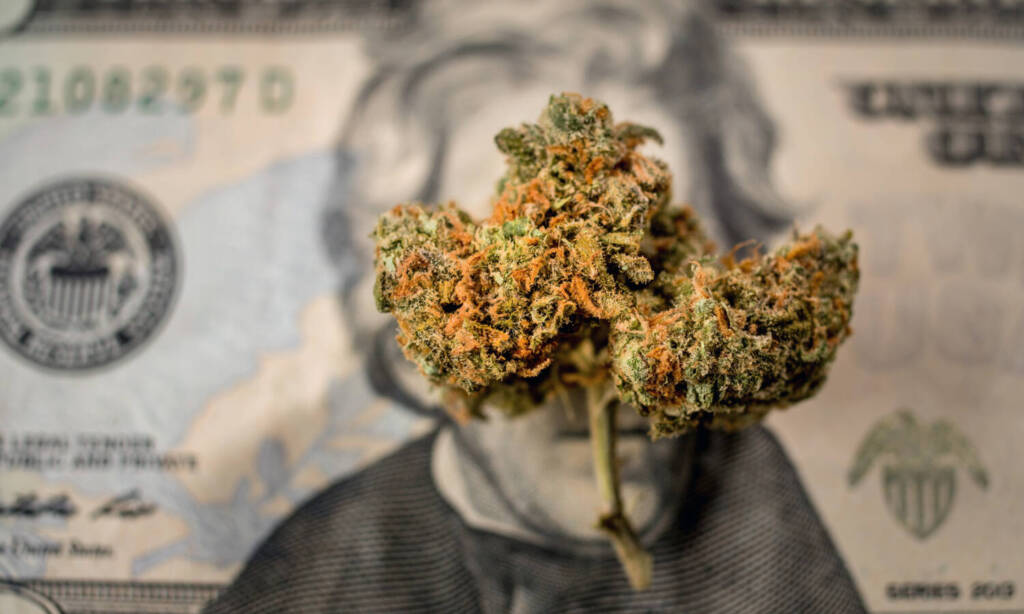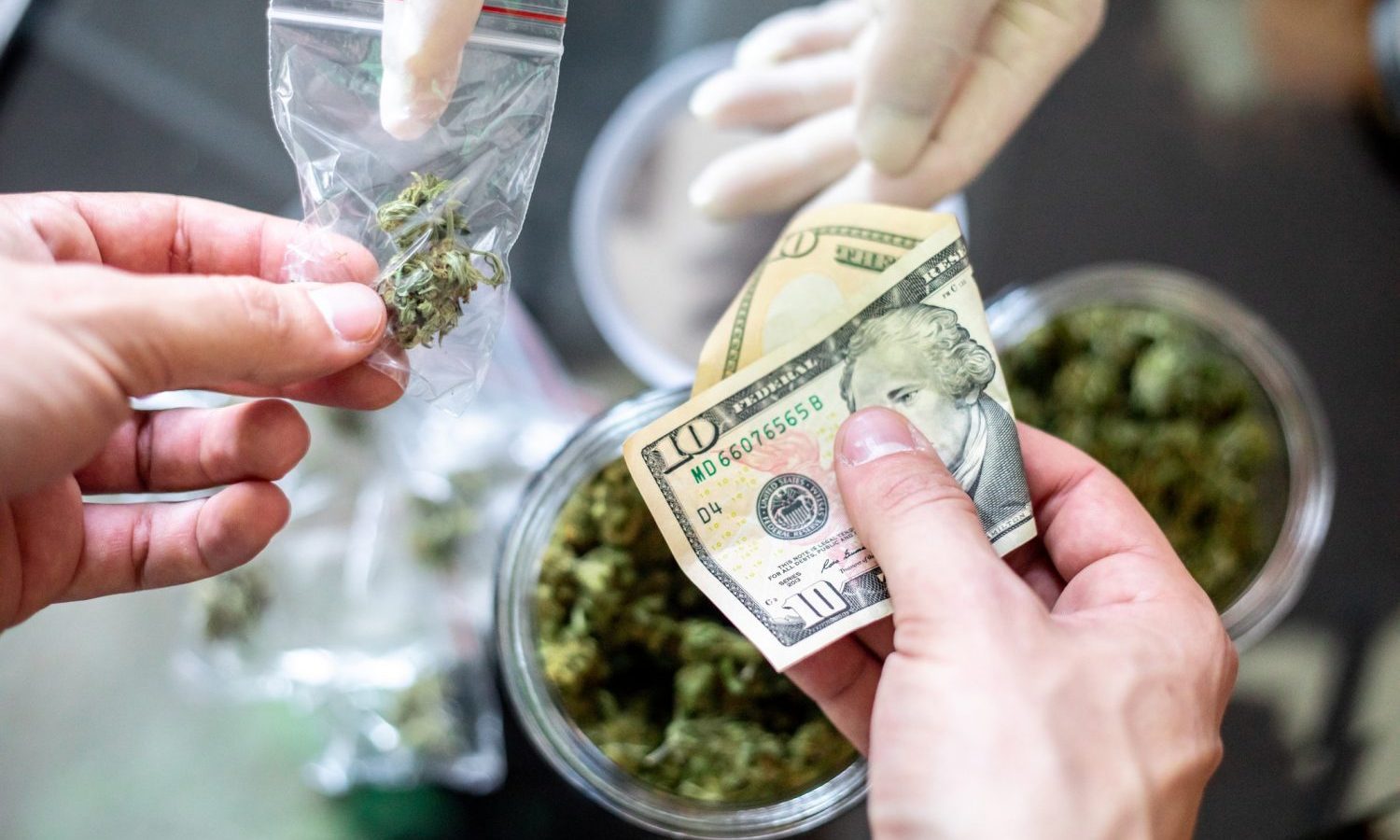Perhaps you need to do some research about the brands you’re consuming and find out if the parent companies are allies of cannabis or simply allies of profits.
This article originally appeared on Cannabis.net and has been reposted with permission.
Someone once told me that the only true power the people ever had was where they spend their money. In other words, the consumer’s true power lies in their choice of supplier. In more simple terms, if there’s no one buying your stuff, you’re not making any money.
This is a consumer super power and while individually it might seem that one person’s action could not possibly make any significant impact on a business. The truth of the matter is that even if one person “finds a reason not to buy” from a particular brand, it could mean that “other people” could also find other reasons. When enough reasons to avoid a particular brand is adopted in the marketplace, a business essentially dies due to a lack of revenue.

This is something that we as cannabis consumers should keep in mind as we enter into a new era of cannabis. While the victory for legal cannabis is still being fought on a federal level, big corporations are swooping in on the local legalized landscapes trying to gobble up the market before anyone else can get a chance to participate.
Companies like Acreage Holdings, where a Mr. John Boehner — former Republican Speaker of the House of Representatives and a staunch opponent of cannabis who flip flopped for a board position in the company — are suing local governments in order to keep them from creating “local residency clauses” within cannabis legalization. Essentially, these clauses would mean that a license holder would have to “have lived within the area” for a set period of time to quality.
This would immediately make it impossible for big conglomerates such as Acreage Holdings to operate within these areas. This is why last year they sued the district of Maine over these clauses as reported in Forbes:
A federal judge in the District of Maine ruled that residency requirements violate the U.S. Constitution’s dormant commerce clause, which reserves the power to regulate interstate commerce—which, even though interstate cannabis is illegal, extends to marijuana—to the federal government.
While Constitutionally speaking, Acreage Holdings does have a legal case and would probably win in the court of appeals, too. The point is that big faceless corporations tend to try to circumvent or bend the rules to suit their favor, and to think that within the realm of cannabis it would be any different would be naïve to say the least.
This brings us to the initial point: the super power of the consumer!
Ethical Cannabis Buying
You can’t blame a shark for mistaking a human for food when the human is swimming where the shark eats. Nor can you expect Wall Street millionaires to do ethical business practices when they can strong arm the law to their favor. Therefore, the responsibility of consumption lies squarely on the shoulders of the consumer — you should not be comfortable with buying weed from companies that places profits above people.
Making sure where you source your weed from should be a concern to you these days. While I’m not saying that corporate weed is a bad thing, I think that there could be plenty of benefits from a corporate cannabis company that spends money on R&D to create products catered to a wide demographic. However, these companies need to adhere to an ethical standard.

We are currently in a major transition within society and within this transitory moment we have the opportunity to rewire the system entirely. This includes how we interact with businesses as consumers. If you find out that a particular company is mistreating their employees or another cannabis company is cutting corners, then it should be your duty as an ethical consumer to cease to consume their products.
As mentioned, this might not be enough to do any significant damage on an individual scale. However, you would be surprised to see how many people follow suit when they learn about the reasons of your personal boycott.
“Hey man, we should totally buy these!”
“Nah man, f’ that brand!”
“Huh why?”
“Well, they Xed, some Ys, in the Zs…”
And just like that, you begin a domino effect and create revenue disruption against the offending brand. It truly is the most effective way of taking action against corporations that violate social trust or try to game the system.
RELATED: How Accessibility Is Destroying The Legal Marijuana Industry In America
This is why it is important to be informed about the products you purchase. To blindly trust the corporations on any of the products they sell you is an ignorant approach to being an ethical consumer. The fact of the matter is that many of us still buy shit when we know it’s tainted with human suffering — as long as it’s fast and cheap, a little bit of suffering goes a long way!

However, when it comes to your weed – there is a sense of purity you’ll want to keep within the marketplace. If we leave cannibalistic corporations to dominate the cannabis marketplace, we’ll eventually end up with a handful of Monster Corporations with hardly any local competition. When that happens, these big corporations will try to buy up intellectual property and make it virtually impossible to make your own strains or competing products.
RELATED: Is Big Pharma Weed Coming With Pfizer’s Recent Purchase?
They will do this by lobbying to change laws and to make the legal point of entry into the marketplace unsustainably high so that the average Jane and Joe could not possible consider investing into the market.
Therefore, if you don’t like Big Corporations coming in and date raping the cannabis industry, perhaps you need to do some research about the brands that you are consuming and find out if the parent companies are allies of cannabis or simply allies of profits.
I’m not saying you should boycott or not — that is entirely your decision. However, you should be making those decisions as informed as possible.
This article originally appeared on Cannabis.net and has been reposted with permission.


